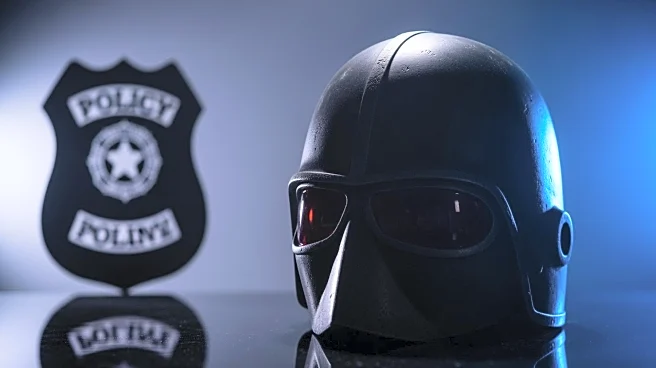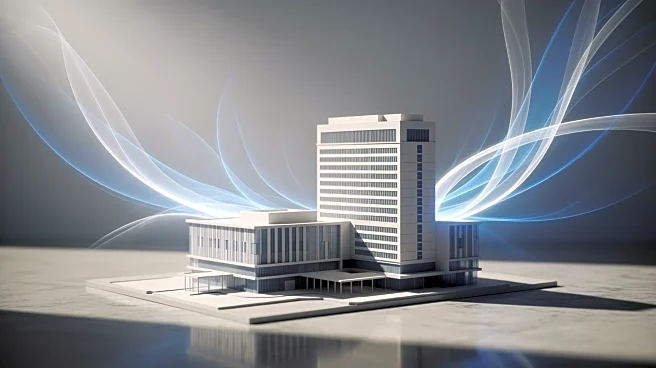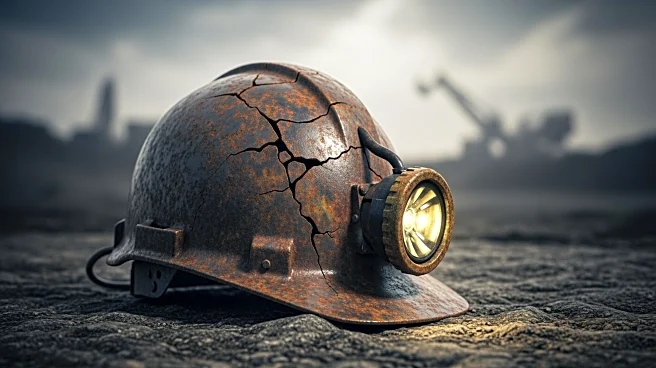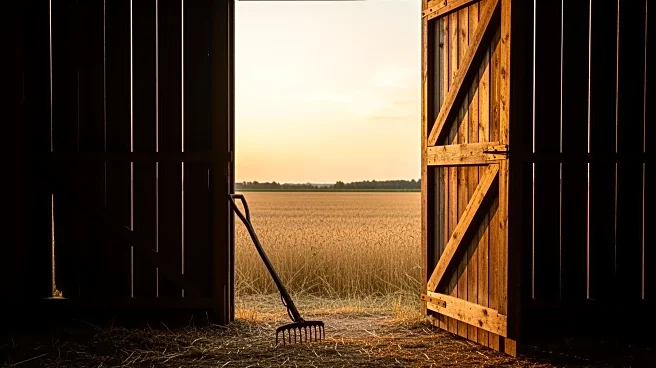What's Happening?
Sam O'Hara, a Washington resident, has filed a federal lawsuit against the District of Columbia, claiming his constitutional rights were violated when he was detained by police for playing 'The Imperial
March' from Star Wars during a National Guard patrol. O'Hara's protest was against President Trump's deployment of Guard members in Washington, D.C. The lawsuit, filed by American Civil Liberties Union attorneys, states that O'Hara was handcuffed for 15 to 20 minutes before being released without charges. The suit accuses four Metropolitan Police Department officers and the Guard member who called them of violating O'Hara's First Amendment rights to free speech and Fourth Amendment rights against unreasonable seizures and excessive force. O'Hara is seeking unspecified compensatory and punitive damages.
Why It's Important?
This lawsuit highlights ongoing tensions between Washington, D.C. residents and federal law enforcement actions under President Trump's administration. The deployment of National Guard troops in the city has been controversial, with many residents viewing it as an infringement on the district's autonomy and a departure from traditional practices of civilian policing. The case underscores the broader debate over the balance between security measures and civil liberties, particularly in heavily Democratic areas. The outcome of this lawsuit could set a precedent for how similar protests are handled and influence public policy regarding military presence in civilian areas.
What's Next?
The lawsuit is currently assigned to U.S. District Judge Timothy Kelly, who was nominated by President Trump. The legal proceedings will likely explore the constitutional implications of O'Hara's detention and the broader impact of military deployments in civilian areas. The case may prompt further scrutiny of law enforcement practices in Washington, D.C., and could lead to changes in how protests are managed. Stakeholders, including civil rights groups and local government officials, may react to the case's developments, potentially influencing public opinion and policy decisions.
Beyond the Headlines
The case raises questions about the normalization of military presence in civilian areas and its impact on civil liberties. It also touches on the cultural significance of using popular media, such as Star Wars, in protest actions, reflecting a modern approach to activism. The lawsuit could lead to discussions about the ethical dimensions of using military force in domestic settings and the long-term implications for democratic governance and public trust in law enforcement.








